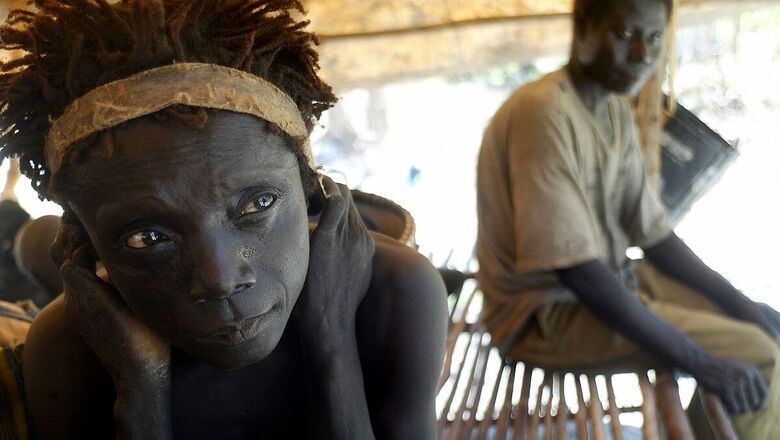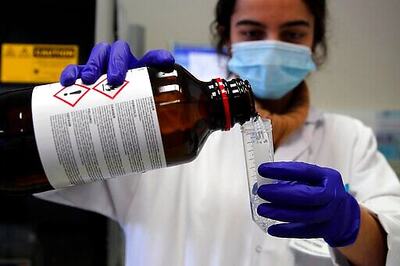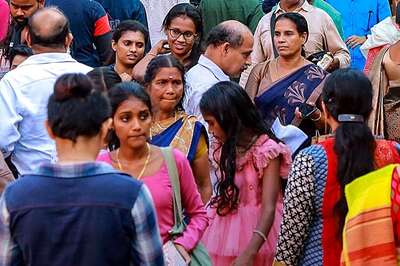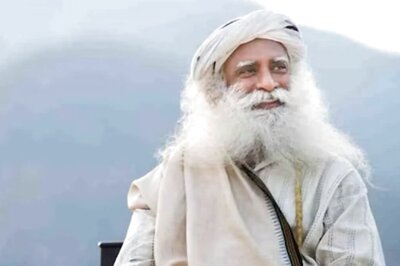
views
Even as coronavirus cases continue to rise across the country, reports of five members of the Great Andamanese tribe testing positive have raised the virus have raised serious concerns over the safety of the Particularly Vulnerable Tribal Groups (PVTGs) in the Andaman and Nicobar Islands.
Due to the rising number of Covid-19 cases in the archipelago, the local administration had taken a decision to send the members of the Great Andamanese tribe to their earmarked ‘Strait Island’ after coronavirus testing, during which, five members tested positive for the virus. The administration is setting up an elaborate plan ina few days to shield these vulnerable tribes from this pandemic.
Over the years since the establishment of penal settlement in 1858 by the British, the population of primitive tribes like Onge, Jarawa, Shompen, Great Andamanese, Onge and the Sentinelese were decimated due to various reasons including epidemic (after coming in contact with the British soldiers), exploitation in exchange of alcohol and during confrontation with the Britishers.
Presently, there are 56 members of the Great Andamanese tribe alive, 238 (approx) of those from the Shompen tribe, 520 Jarwas while the Onges and Sentinelese are 120 and 50 (approx) in numbers
respectively.
Speaking exclusively to News18.com, Union Minister for Tribal Affairs Arjun Munda said, “We are taking all precautionary measures to protect these Vulnerable Tribal Groups from the Covid-19 pandemic. Officials are regularly in touch with the local administration in Port Blair. PM Narendra Modi and Union Home Minister Amit Shah are very keen to act for the welfare of the indigenous tribal group in the Islands.”
Speaking on the 5 members of the Great Andamanese tribe who tested positive in Port Blair, Munda said he will be seeking a report on the latest update from the Tribal Welfare Department in Port Blair regarding the matter and all necessary action will be taken for the safety of all tribes in Andaman.
Nodal officer, Andaman & Nicobar Dr Avijit Roy confirmed the report of the five Great Andamanese tribe member testing positive and said his department is working round the clock to contain the virus in the archipelago.
Medical Superintendent of Maharaja Agrasen Hospital Dr Mamta Jain, who has been treating COVID-19 patients suggested that there should be elaborated plans to handle tribal people in this pandemic situation.
“They are vulnerable and get infected easily because of their weak immune system. One should focus on increasing their immunity by providing them with a measured diet which will suit their
system. Continuous watch on the tribal community through ‘hands off, eyes on’ policy should be there because we have seen that even after repeated negative coronavirus reports, patients died due to other complications later. Initially it will look like the patient has no complications but due to comorbidities, he or she may develop other complications. There is no standard mantra to treat COVID-19 patients. We have to treat them as per their health history,” she said.
Jain added, “We have to look for advanced medical infrastructure in Andamans considering the seriousness of the disease. Loss of smell and taste occurs in nearly 30 percent of patients and it is as accurate as a COVID RT-PCR test to diagnose the COVID infection in current times. This is associated with excellent survival and fast recovery. Those who will be asked to stay in home quarantine should be treated with oral drugs as per doctor’s advice (again based on their basic health parameters) or SpO2 (Oxygen saturation) and report to hospital in case of difficulty in breathing.”
In 2018, Andaman and Nicobar Islands hit the headline after the Sentinelese killed an American national John Allen Chau in November 2018 after he ventured into their North Sentinel Island. The access to North Sentinel Island and its buffer zone is strictly prohibited under the Protection of Aboriginal Tribe (Regulation), 1956 and Regulations under Indian Forest Act, 1927.
The Sentinelese tribe is designated as a Scheduled Tribe. As per record, no people on earth remain so isolated than the Sentinelese. Till today they are among the last people to remain untouched and uncontacted by modern civilization. They are thought to be directly descended from the first human population to emerge from Africa, and have probably lived in the Andaman Islands since the past 55,000 years. The tribal members have always resisted outside human contact and have attacked with bow and arrows in case outsiders have tried to come any closer.
The Sentinelese are also known for their great hunting skills and the best predictor of natural disasters. They are also vulnerable to attacks from Burmese poachers who often venture into the Indian sea for corals, sea sponges and Padauk wood.
When contacted SA Awaradi, former director of tribal welfare and Andaman & Nicobar Tribal Research Institute, Port Blair said, “There is a need to ramp up initiatives to prevent interaction of tribal community people with the non-tribal. All tribes should be sent to their earmarked Islands. In case of Great Andamanese, they should be sent to Strait Islands after proper testing.”
“A detailed plan for the welfare of the tribal was already drafted when I was in the department. There is a basic argument that tribes came out from their territory and interacted with the non-tribal. To prevent this, we have decided to provide their needs in their territory with the help of experts. We have also planned mobile medical unit vans and boats to help them in case of medical cases,” he said.
Awaradi stressed that during the pandemic, utmost care should be taken to save these Vulnerable Tribal Groups as the Islands have already faced four pandemics in past since penal settlement which led to mass deaths among the tribal community.
“This Island should be completely free from this virus. Since penal settlement in 1858 by the British, the population of primitive tribes like Onge, Jarawa, Shompen, Great Andamanese, Onge and the Sentinelese were decimated due to syphilis, influenza, measles, and gonorrhoea like epidemics. Then, they came in contact with the British and got infected. This pandemic is worse than the previous ones and the matter of concern is that these tribal people are more prone to get infected due to their poor immune systems,” he said, while adding that the population of the Onge tribe is increasing.
Awaradi worked extensively for the tribal welfare in Andamans and he was the first to visit the North Sentinel Island on January 4, 1991 and was the first to establish contact with the Sentinelese.
The expedition led by Awaradi started from Port Blair on January 3, 1991 and after travelling 60 km on rough sea, the team reached the North Sentinel Island the next day. The contact mission was organised by the Tribal Welfare to find out the health condition of Sentinelese and their behavioural pattern.
Last month, Andaman police arrested a man after he tried to exploit the Jarawa tribe members by offering them alcohol in exchange of wild boar, turtle and venison for meat. Identified as Sanjit Mondal, the accused is a resident of Bamboo Tikrey, Middle Andaman and was booked under various acts including PAT regulation and Disaster Management Act.
This is not for the first time when non-tribal members have tried to gain entry into the tribal reserve area and it has resulted in serious health hazards among these aboriginal tribes.
Tribal welfare activists around the globe are demanding to ban ‘human safaris’ along the Andaman Trunk Road-ATR (which passes through the protected Jarawa zone). They have alleged that tourists and locals have many a times tried to exploit the tribes by offering them food in return for their photographs.
In some cases it was learnt they were offered liquor in exchange of seafood like crab, lobsters, sea cucumber and shells.
In 2014, former President Pranab Mukherjee, during his visit to Andaman, had made a passionate appeal against forced assimilation into mainstream of marginal and highly fragile tribal communities. He had said that such tribal communities should not be disturbed in the name of development, lest they become victims to the process of assimilation. “Any assimilation should come from within, not imposed from outside,” he had said.
There are a total of 2,860 COVID-19 cases in Andaman and Nicobar Island. Out of 2860, 864 are active cases and 1,963 people have recovered (including 110 recoveries in the last 24 hours) from the infection. Total 33 have died so far from the virus.
To contain the virus, the local administration has made Rapid Antigen Test mandatory for all incoming passengers from the mainland at Port Blair International Airport from August 22, 2020.



















Comments
0 comment